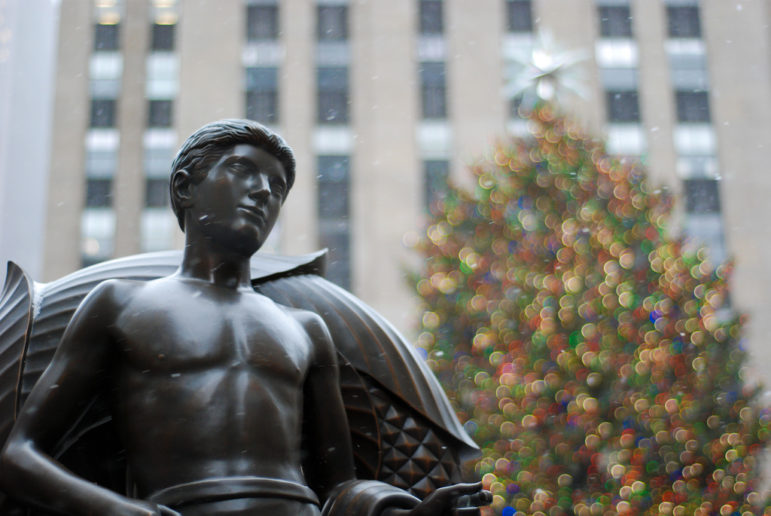
Brett Gullborg
Christmas was never just about Christmas in my family. Growing up in Palmyra, NY, I sang carols with my family and went to midnight mass. When I married a Jewish man, Chanukah was added to the festivities. Living in Brooklyn, we added Kwanza to the rotation along with the Winter Festival celebration at the Brooklyn Society for Ethical Culture where we raised our children.
As an Ethical Humanist and member of the American Ethical Union, all cultural faiths and traditions interest me. New York City offers many opportunities for learning about them. While the majority of New Yorkers identify as Christian, there are also many practicing Jews, Hindus and Muslims. Unity is the connecting tissue for all of these faiths’ holiday celebrations. And it’s something our country is in need of now.
A recent Gallup poll found that 77 percent of Americans perceive the nation as divided. Tensions have flared into violence, with the FBI reporting a surge in hate crimes since 2017, most recently seen in the horrific shooting at the Tree of Life synagogue in Pittsburgh and anti-Semitic desecration at a Brooklyn synagogue.
If we are to stay true to the message of unity that is at the core of Christmas, we have to change the way we celebrate. We have to be more inclusive.
To be clear, I’m not calling on congregations and families to get rid of their long-held traditions. Nor would I say that one night will solve all of our problems. But we can start the process by making an effort to actively engage with other faiths and traditions.
There must be genuine interest in coming together. Just throwing a group of people together and hoping for the best rarely works. Thankfully, in urban communities like ours, holiday celebrations hosted by faith denominations are open to the public. I suggest entering with some humility and an interest in learning.
The result should look like the recent Diwali celebration in Brooklyn, where the local Hindi community welcomed local government officials like Park Slope Councilman Brad Lander, who offered a Jewish reflection, to experience their traditions. And at my congregation at the New York Society for Ethical Culture, we host an annual Winter Festival celebration open to all faiths, and ages. Our children take the lead at this time of year with music and storytelling and play. Together we hold hands and hold up the values of our shared humanity.
Outreach should also extend to more secular New Yorkers. Of the five boroughs, residents of Manhattan are the least religious, but that doesn’t mean they can’t celebrate aspects of Christmas or other traditions. I know Humanists who sing Handel’s “Messiah” at a Lutheran church every year and decorate their homes with boughs of holly. It neither violates nor validates any sacred tradition to experiment.
Many people choose to stay within their comfort zones and tribes, never venturing out to explore other communities and to develop new relationships. But even within those circles, rifts can occur that need healing. Old hurts tend to arise during this season of joy. This could show itself through pushback in your congregation over the idea of reaching out to different faiths.
Your instinct in such a situation might be tell them they are wrong. But to call them out in that manner would hardly be in the spirit of the season. Instead, listen to their concerns. Ask them why they feel this way and then calmly explain your position. You may not convince them to relent but you will have shown that you are willing to listen and avoid a confrontation that would only further our divides. And even if your whole congregation isn’t willing to host an interfaith event, you can still go out on your own to expand your horizons and offer an olive branch.
We’re incredibly lucky to live in a city with such a diverse array of faiths and beliefs. We are doing that diversity a disservice if we don’t do everything in our power to build relationships with these communities. As Americans across the country to continue to find divisions on almost every issue, let’s take this opportunity to find some unity for a change.
Dr. Anne Klaeysen is a Leader at the New York Society for Ethical Culture, one of 23 member societies of the American Ethical Union, a national humanist organization that emphasizes ethics and the importance of human connections.








